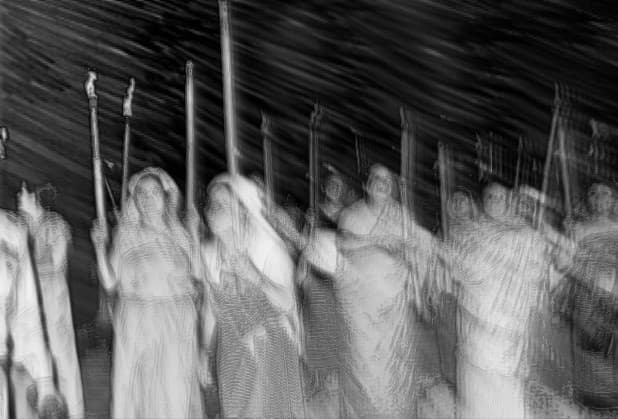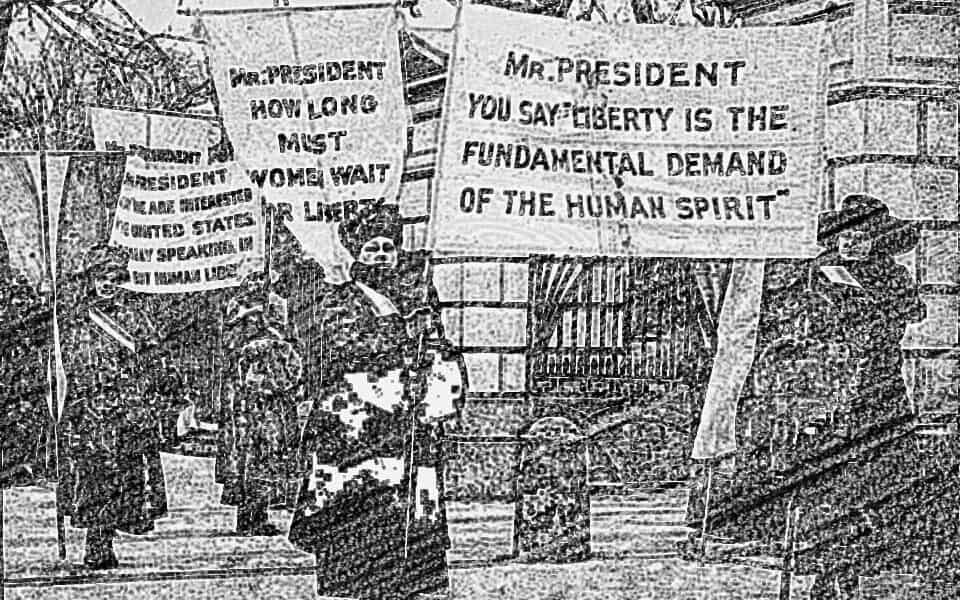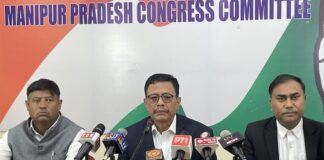“Women are not only walking talking vaginas”, declares Bollywood actress Swara Bhaskar in public.
“Please do not mention women’s body while speaking in public gatherings”, screams a headline in a newspaper, quoting a women’s group in Manipur.
No, don’t get it wrong. The above two are separate incidents, perhaps, in two different worlds. The first one is from an open letter written by Swara Bhaskar in a web portal two years ago as a response to Sanjay Leela Bhansali’s film “Padmaavat”. That open letter was widely reported in media and discussed in other public platforms as well.
And the second relates to a recent incident this year in Manipur. The headline is that of a news report of a women’s group in that state condemning Dr. Dhanabir Laishram, a prominent activist and public intellectual or “thought shaper” as the women group called him, for his gender insensitive remarks in a public function.
Though separated by time and space, the two incidents are however related: Both have to do with vaginas, and the patriarchal world around it.
Vagina and Two Protests
In the first case, Swara Bhaskar, an actress who is also vocal about various socio-political issues, expressed her discomfort with the film “Padmaavat”. This film told the story of Rani Padmavati who, along with other women, committed suicide by jumping into the fire to save their “honour”, from being “taken” by another ruler and his men who defeated her husband, a Rajput king. Bhaskar believed that film glorified inhuman practices like sati and jauhar. In fact, after watching the film, she wrote, “at the end of …[the] magnum opus, I felt like a vagina. I felt reduced to a vagina-only”.
Similarly, in the case of the recent incident in Manipur, some women protested because a well-known public intellectual have allegedly insinuated that women go for Cesarean section because they wanted their “vaginas [to] remain intact”!
In a public function, Dr. Dhanabir Laishram, a well-known activist, cited the desire to be a “leishabi” (“un-married women”) amongst some women as a reason for their preference to go for C-section rather than vaginal birth. Elaborating his observation, Dr. Laishram, went on to say that since the child was born by cutting the abdomen, (the woman) remains “unmarried” (“lelladi leishabi adum oidana, angang du puk tagi pok-aa-banina”)!
This rather bizarre explanation elicited outcry and condemnation in social media as well as in the press. A “joint press statement issued by women from different background(s)” charged Dr. Laishram of insulting women by insinuating that they prefer to go for C-section rather than vaginal delivery so that “their vaginas remain(ed) intact”. And they also demanded a public apology from him.
Dr. Laishram went on air on television and denied the allegation. He said that he had been misunderstood both in terms of his words and intent.
Clarifying what he meant in his speech, he said that women who had gone through C-section tended to have low milk supply and consequently the child had to be bottle-fed. This freed the new mother from being tied to the child all the time as the baby could be bottle-fed by other members of the family. Besides, these women are exempted from doing household works due to the operation they have gone through, he added. Saying that compared to “mou” (married woman), “leishabi” are relatively “free” (from household works and breast feeding etc). It is in this sense of being “free” like the “leishabi”, those women who wanted to be “leishabi” chose to go for C-section, he clarified.
“It is instructive that Dr. Laishram, a well-known activist and public intellectual of Sanaleipak (a sobriquet of the state) who epitomizes a signature intellectual style of the land has courted controversy…that reactions to his speech do not come from the familiar activists and academics/intellectuals”
His clarification was followed by a press conference called by some women(under the banner of a new group called RISE) and condemned Dr. Laishram for his statements as sexist and misogynous. And they also issued an appeal in the press “not to mention women’s body and their body parts while talking in public gatherings or any kind of platform” (“Miyam tinba mifam nattraga makhal amattagi platform-da nupigi hakchang aamadi hakchanggi saruk panduna waangang ba toubiganu”).
Words, Leishabi and Vagina
Incidentally, Dr. Dhanabir Laishram did not use the word “vagina”, let alone “vaginas remain intact”, in his speech.That’s an interpretation, and expression used, by the women group. It’s a “wrong interpretation” which “embarrassed” him, Dr. Laishram insisted while giving his clarification on television.
Besides, he also made an appeal that what he had said must be seen and understood from the overall context of what he had said and done as well as his intention rather than merely focusing on the “word” (i.e., “leishabi”).
But “word” itself is central to our life. It is with and through words that we make sense of our world, both within and without. It not only enables us to express what we feel and think, but also marks who we are. Linguists, literary critics and psychologists tell us that word reveals and shapes the thoughts and also serves as windows to the worldviews of the speakers/writers; it can reveal not only what it manifestly communicates but also things which the word does not overtly speak.
Indeed, words are central to our being as “political animals”. Centuries ago, Aristotle proclaimed that “man is a political animal” precisely because human beings “are capable” of “thinking” and “speech”. Incidentally, amongst the Christians, one of the first thing that they encounter in the Bible is the verse from the Genesis, “In the beginning was the Word, and the Word was with God, and the Word was God” (John 1:1).
In the secular or non-theological world too, there are views which draw our attention to the significance of words in our life. For instance, in linguistics, there is this “Spira-Whorfian Hypothesis” which deals with the relationship between “language” and “thought” suggesting that the former shapes the latter. Anthropologists who study culture and cultural differences are also aware of this relationship between language and thoughts/emotions. Similarly, this hypothesis is something that undergraduate psychology students know as a part of their study on psycho-linguistics and “thinking”. And, just as written words are important in literary criticism, psychotherapists also recognize the significance of the uttered words by their clients/patients.
In jurisprudence, the way words are used and interpreted can have different implications; Even conjunctions like “or” and “and” or a coma (,) can make hell of a difference in the interpretation of a legal provision (Those who have been engaged with AFSPA know this very well).

In fact, in Manipur, Meiteis have a popular saying that speaks of the importance of “words”: “Mee-na sibana chinda, saa-na sibana khongoonda”, that is, “Man dies because of their mouth (indicating speech/words) and animal dies because of their footprints”. This being the case, one has to be careful with the words one uses, especially when one is commenting or communicating on issues of public importance in the public domain.
In the light of the above place of “words” in our life, we can understand the meaning and implications of Swara Bhaskar’s “I felt reduced to a vagina” or the appeal of a woman group in Manipur (that is, “Please do not mention women’s body while speaking at public gathering” or “Miyam tinba mafam da nupi-gi hakchang panduna waa ngangbiganu”) and Dr. Dhanabir Laishram’s invocation of “leishabi”.
We might as well begin with Dr. Laishram’s invocation of the word “leishabi” (“un-married woman”) to understand why some people have taken exception to his speech.
So, what makes the word “leishabi” evoked “vaginas”, that too, “intact” as its meaning?
The answer lies in the worldview of patriarchy and its practices. And it is a world in which both Dr. Dhanabir Laishram and those who have taken exception to his speech inhabit.
A crucial cultural meaning of being a “leishabi” or “unmarried woman” is rooted in the idea of “virginity”, which, in turn, is reified through the physical condition of her vagina. The myths around “hymen”, a small tissue which has been mistakenly assumed to be a membrane that “covers” the vagina, has been a powerful patriarchal tool to define “virtue” of womanhood, and regulate and control her.
Also Read: Loose talks and Trolls: On Vagina, Public (Sphere) and Struggle for Dignity – 2
Indeed, vagina stands in for the whole body of woman, and by extension – womanhood; it is a part of the body of a woman to which they have been reduced to and simultaneously also presented as something that is to be “possessed” or “protected” by men.
Having internalized this ethos, that is, their being “reduced” to their vaginas, some women who have suffered sexual assaults commit suicide or when their husbands as “owners” die, widows are consigned to fire along with their dead men (e.g., sati). In a way, it is like students who commit suicide because they have “failed” in school examination. Having equated their lives with (or reduced to) “examination” itself (under certain education system and its corresponding societal ethos/expectations), success and failure become matters of life and death or living and dying.
It is this awareness that informed Swara Bhaskar’s response to the film “Padmaavat”. She felt that the film glorified sati and jauhar (cultural practices wherein women were burnt alive with their dead husbands or women commit suicide from being “taken” by other men). Consequently, the film, she “felt reduced [her] to a vagina”.
Indeed, reducing women to their vaginas is a cultural ethos which has been reproduced in many films. Women killing themselves after being raped and their men seeking to take revenge has been a popular narrative trope in popular cinema.
Even in the realm of history and memory, we do find glimpses of this ethos of reducing women to their vaginas. For instance, people who have worked on the “partition” of south Asia, including feminist scholar-activists such as Urvashi Butalia, Ritu Menon, Kamla Bhasin, have noted on how woman’s body became a site of that colossal violence (e.g., women were killed by their own family members or women killed themselves by jumping into the wells to save the “honour” of not only themselves as women but also that of their community).
It is against this patriarchal ethos of reducing women to their vaginas, and the glorification of the same, that Bhaskar responded by insisting, “women have the right to live, despite being raped…despite the death of their husbands, male ‘protectors’, ‘owners’, ‘controllers’ of their sexuality’…”.
Incidentally, in his clarification on television, Dr. Dhanabir Laishram did concede, albeit like a Freudian slip, that the “word itself” (“waheidumakti”) was liable to be interpreted in the way these protesting women and others have sensed (“waheidumakti moina haidu chumeba” — “in terms of the word itself, what they’re saying is right”).
In fact, his invocation of “leishabi” in his controversial speech as well as in his clarification on television are rooted in the traditional worldviews on/about gender. And many of these traditional views on gender roles and stereotypes are not in sync with certain contemporary sensibility. Thus, in terms of this emerging or new sensibility, his invocation of the word, “leishabi” is bound to be seen as sexist, and even misogynous in nature.
Indeed, it is instructive that Dr. Laishram, a well-known activist and public intellectual of Sanaleipak (a sobriquet of the state) who epitomizes a signature “intellectual style” of the land has courted controversy. It is informative in two senses. First, the controversy signals an emerging class of people with a new sensibility which is different from those shaped by traditional worldviews on gender issues. To this emerging class of people and their sensibility, his “intellectual style” might come as a “style” of “pang-hai haijinbi” or “pakngang ngangba” (“loose talks”) which does not represent an informed discourse based on “research and data” etc.
Second, it is also equally instructive that reactions to his speech do not come from the familiar activists and academics/intellectuals; those traditionally vocal groups and individuals, such as various civil society groups, including Meira Paibis, columnists or public intellectuals or activists whom one gets to see on televisions, are rather conspicuous by their (relative) silence on Dr. Laishram’s controversial speech. Instead, the reaction came from a group of women from “different background(s)” consisting of “activists, educationists, writers, homemakers, journalists, doctors, NGO workers”. Beyond this group, there was a relative silence. This perhaps speaks of a deference for Dr. Laishram or influence enjoyed by him as a committed activist and key public figure who has been involved with many of these groups in leading and shaping various people’s movements in the state. Simultaneously, it also signals a development that shows that citizens are being organized beyond these familiar civil society groups in the state.
However, what is the exact nature these new developments is another point. For instance, there are questions that need to be answered as to whether the new sensibility represented by this group (RISE) is completely free from patriarchal moorings or what is the nature of their commitment to women’s issues such as women’s reproductive health etc. We shall look at this a little later in this write-up.
For now, it must be said that Dr. Laishram is aware that his choice of the word “leishabi” could be problematic. As he admitted during his clarification on television “waheidumakti moina haidu chumeba” (“in terms of the word itself, what they’re saying is right”).
However, that awareness perhaps remains what it was for him: a lurking sensibility. One suspects that if he had fully comprehended the implications, he would have simply acknowledged that his choice of the word was misplaced, if not wrong, and expressed regret. Instead, he went on to defend the choice of the word by citing connotations which are themselves rooted in traditional gender roles and stereotypes.
In short, irrespective of Dr. Laishram’s “intent” and “overall context” of his speech, in the way the word “leishabi” was used in his speech or in his clarification is undoubtedly sexist, and even smacks of misogyny insofar as it reproduces societal prejudices against women.
Indeed, it is unfortunate that as someone who is trained in social science and a public figure, he had allowed unscrutinized social prejudices to creep into his expression of concern over a legitimate socio-medical issue around C-section.
Incidentally, such is the entrenched character of patriarchy and its social prejudices, even some of those women who have taken exception to his speech ended up reproducing what they are ostensibly fighting against. The appeal, “please do not mention women’s body while speaking at public gatherings” is a classic reminder of this fact.
Indeed, the insidious nature of patriarchy is such that some of these women even flagged off the same news reports on social media as a sign of their fight against patriarchy! Let us turn to this insidious character of patriarchy, and how it plays out in our “public sphere” as well.
The author is a social and political psychologist. He teaches social psychology and sociology at Jawaharlal Nehru University, New Delhi
Editor’s Note: This is the first part of Angomcha Bimol Akoijam’s series on the recent controversy over Dr. Dhanabir Laishram’s speech. The second part will be published tomorrow. (The views and opinions expressed in this article are those of the author and do not necessarily reflect the official policy or position of The North East Affairs)


